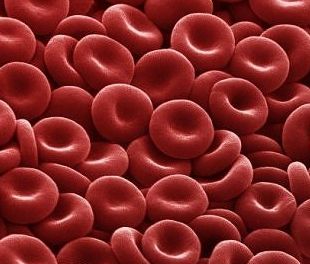An MCH blood test is a simple blood test that measures the average amount of hemoglobin in your red blood cells. Hemoglobin is a protein that helps transport oxygen throughout your body, and a low MCH result can indicate an underlying health issue. In this article, we’ll take a closer look at what an mch blood test low result means and what it could indicate.
Table of Contents
What Is an MCH Blood Test?

MCH stands for Mean Corpuscular Hemoglobin, and it’s a measure of the amount of hemoglobin in your red blood cells. This test is usually done as part of a Complete Blood Count (CBC), which is a routine blood test that looks at your blood cells and can help detect anemia or other blood-related disorders.
Understanding the MCH Blood Test Results
A MCH blood test low result means that the amount of hemoglobin in your red blood cells is lower than normal. The normal range for MCH is typically between 27 and 33 picograms per cell. If your MCH result falls below this range, it could indicate an underlying health condition.
Causes of Low MCH Blood Test Results
Low MCH blood test results can be caused by a variety of factors, including:
Iron Deficiency Anemia
Iron deficiency anemia is a common cause of MCH blood test low results. This condition occurs when your body doesn’t have enough iron to produce hemoglobin, which can cause your red blood cells to be smaller and paler than normal.
Thalassemia
Thalassemia is an inherited blood disorder that affects the production of hemoglobin. People with thalassemia may have low MCH blood test results due to the abnormal hemoglobin production.
Chronic Disease
Chronic diseases, such as kidney disease or cancer, can cause low MCH blood test results. These conditions can interfere with the production of hemoglobin or cause anemia.
Vitamin Deficiencies
Certain vitamin deficiencies, such as a deficiency in vitamin B12 or folate, can cause low MCH blood test results.
Heavy Menstrual Bleeding

Heavy menstrual bleeding can cause low MCH blood test results due to the loss of blood and iron during menstruation.
Treatment for Low MCH Blood Test Results
Treatment for low MCH blood test results depends on the underlying cause. If the cause is iron deficiency anemia, your doctor may recommend iron supplements or a change in diet to include more iron-rich foods. If the cause is a chronic disease, your doctor will work with you to manage the underlying condition.
Preventing Low MCH Blood Test Results
In some cases, low MCH blood test results can be prevented by making lifestyle changes. Eating a healthy, balanced diet that includes iron-rich foods can help prevent iron deficiency anemia. Managing chronic conditions, such as kidney disease or cancer, can also help prevent low MCH blood test results.
When to See a Doctor

If you have low MCH blood test results, it’s important to talk to your doctor. Your doctor can help determine the underlying cause and recommend treatment options. If you have symptoms such as fatigue, shortness of breath, or dizziness, it’s important to seek medical attention right away.
Conclusion
In conclusion, an MCH blood test low is an important tool for detecting anemia and other blood-related disorders. A MCH blood test low result can indicate an underlying health condition, but with the right treatment and prevention methods, it can be managed effectively. If you have any concerns about your MCH blood test results, be sure to talk to your doctor.
Learn about: Get a clear picture of your kidney health today with our state-of-the-art renal ultrasound services, designed to provide comprehensive diagnostic insights that help you make informed decisions about your well-being.












